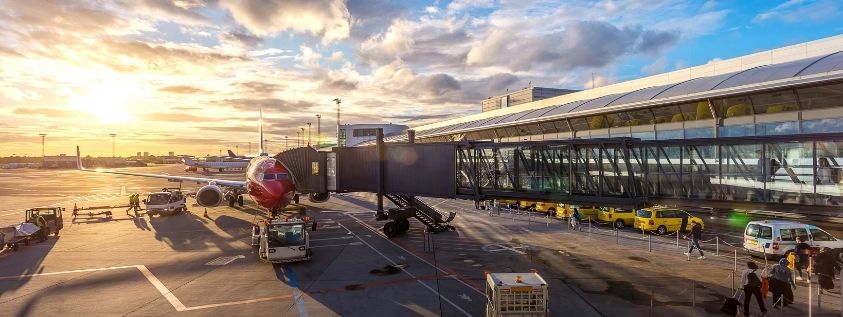All airports, especially those known as ‘hub’ (international connection airports), have a very high complexity of operation due to the high number of tasks involved in their correct operation, whether they are air traffic operations, safety, logistical support to the various companies operating within it, both air carriers and handling or catering services, cleaning or maintenance services, up to the management of the important volumes of people transiting through airport facilities every day. Discover some airport curiosities here.
Large airports constitute a world in themselves, with a complicated web of interactions between the different areas that constitute them, which generates a multitude of little-known aspects that often generate surprise when revealed. We’re bringing you some data that we found more interesting, amazing and often unknown.
The runways offer a big business opportunity
The runways are, along with the “Duty Free” stores, the main source of airport income as all aircraft are subject to payment of “landing rates” whose amount varies depending on the tonnage of the aircraft and the airport. The higher the weight and importance of the airport in question, the higher the amount to be paid. This amount is passed on to passengers or to the consignment in the case of cargo flights. Was anyone wondering what the heading ‘taxes’ is when we get a ticket? Well, that’s exactly the concept.
“Slots”
Very closely linked to the concept of fees are the so-called “slots”. In other words, the rights of passage by certain points of Aerovias, which being intersections forcefully allow the passage to be simulated by the same point only to a limited number of aircraft each hour. The slots determine the departure and arrival times of the routes that an airline operates, and the delay in the output may cause the slot to be lost and wait for this “window” to be reopened, which may become even more than an hour later.
The slots most quoted at each airport are those that allow passengers to board and land on the most sought-after schedules – no one would want to embark or land at untimely hours of the morning, for example – which causes airlines to bid for these privileged hours, and risk losing the slot or right of way if they cancel a particular route too many times. To this extent there is interest in the rights of passage of certain airports, which sometimes a bankrupt airline is purchased by a rival with the sole purpose of using the slots it exploited at that airport.
Passenger distractions produce money
Everyday millions of people around the world make use of airport facilities, sometimes in good time to get a plane before the ship is closed. It is not surprising, therefore, that a relatively high percentage of passengers easily falls into distractions, either through rush or simply by distraction, and end up forgetting some membership in security controls. Very often, the protagonist of these distractions is money, forgotten in the security checks trays. Money that airport employees cannot stay or make personal use of. When this happens, and since the money is anonymous and it is impossible to return to its legitimate owner, it is deposited in a fund that is subsequently invested in security courses or some other preparation.
Unclaimed extravagate auctioned
Unfortunately, baggage is being diverted to airports. This suitcase that does not appear – or, at best, appears at the other end of the planet – if unfortunately, it does not finally succeed in meeting its owner, it will go directly to a warehouse where if, after 90 days, no one is identified as a legitimate owner, it will be auctioned. This includes luggage that has been removed by the airlines themselves, in addition to which they are lost in the maze of ribbons that carry luggage from and to aircraft.
However, airports can only auction lost material once the airline dictates that it has done everything possible to try to locate the suitcase owner or object.
Objects that do not find buyer at auction are often given to charities or sold in auction houses.
Airports keep birds away
Airports are very attractive to birds. These are empty areas where predators have few places to hide, and in many cases the areas where they are located are close to marshes or swamps which may host notable populations of migratory birds at certain times of the year.
For this reason, airports employ the services of companies that frighten birds in the flight camp to prevent accidents. These companies use hawks, eagles and other birds that take care to remove other birds that may interfere with the airport operation.
This is a little sample of how much happens in a large airport facility, and it often goes unnoticed in the eyes of the user, but we have revealed here for you.
Do you want to learn more about airports?
Here are some of the most spectacular airstrips in the world.
